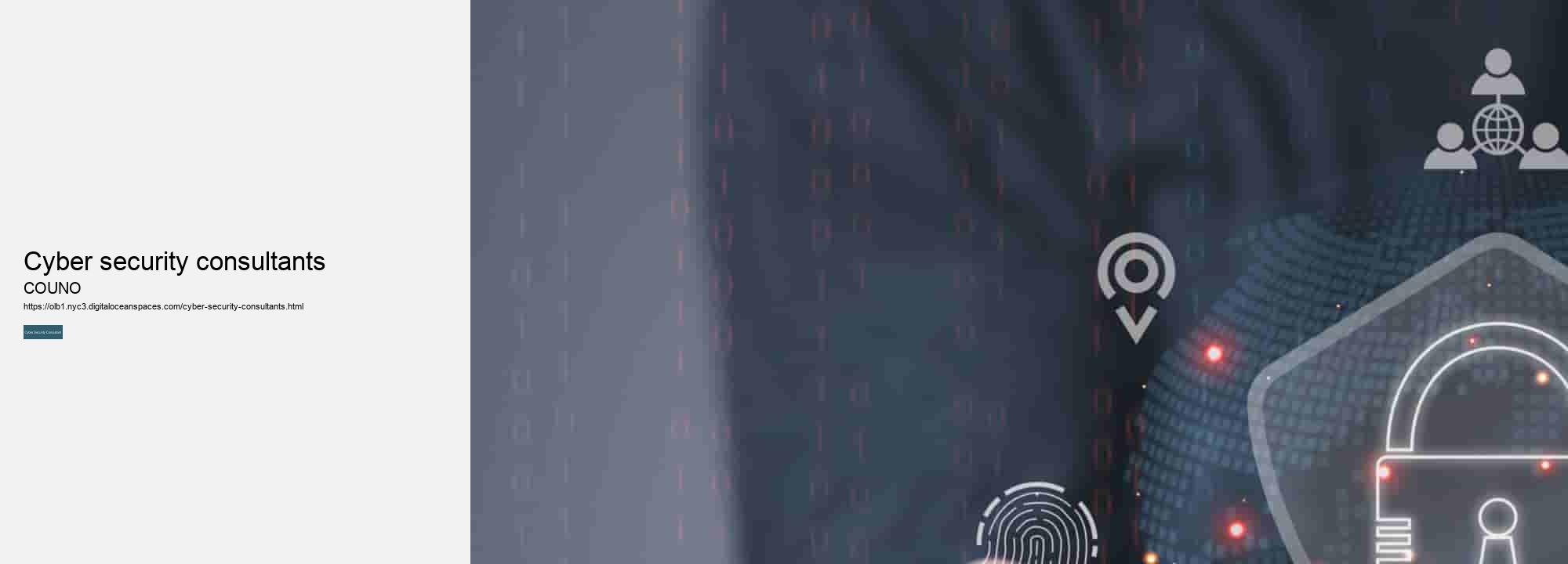

By following best practices such as keeping software updated, being cautious with emails and links, backing up data regularly, implementing strong access controls within organizations,and using secure Wi-Fi connections , we can effectively defend against potential cyber attacks and safeguard our digital lives. The Role of Artificial Intelligence in Enhancing Cyber SecurityIn recent years, the role of artificial intelligence (AI) in enhancing cyber security has become increasingly important. As technology continues to advance, so do the ways in which cyber threats can be perpetrated. With the rise of sophisticated and complex cyber attacks, organizations are turning to AI to help protect their systems and data. One of the key benefits of using AI in cyber security is its ability to quickly analyze large amounts of data in real-time.
AI algorithms can also learn from past incidents and continuously improve their ability to identify new and evolving threats. Another advantage of AI in cyber security is its ability to automate routine tasks, such as monitoring network traffic or identifying suspicious patterns. This frees up human analysts to focus on more strategic tasks and decision-making, ultimately increasing overall efficiency and effectiveness in detecting and responding to threats. Furthermore, AI can help enhance threat intelligence by analyzing vast amounts of data from various sources to identify trends and patterns that may indicate a potential attack.
However, it's important to note that while AI offers many benefits in enhancing cyber security, it is not a silver bullet solution. It should be used as part of a comprehensive cyber security strategy that includes well-trained personnel, robust policies and procedures, and regular testing and updates of security measures. In conclusion, the role of artificial intelligence in enhancing cyber security cannot be understated. By leveraging the power of AI technologies, organizations can strengthen their defenses against an ever-evolving landscape of cyber threats.
As we continue to rely more on digital technologies for everyday activities, investing in AI-driven solutions will be crucial for safeguarding our systems and data from malicious actors. Data Breaches: Causes, Impacts, and Prevention StrategiesData breaches have become a common occurrence in today's digital age, with cybercriminals constantly looking for ways to exploit vulnerabilities in systems and networks. These breaches can have serious consequences for both individuals and organizations, ranging from financial losses to reputation damage. In this essay, we will explore the causes of data breaches, their impacts, and some prevention strategies that can help mitigate the risk. One of the main causes of data breaches is human error.
Another common cause is outdated or unpatched software, which can leave systems vulnerable to attack. Additionally, sophisticated hacking techniques such as malware and ransomware are becoming more prevalent, making it easier for cybercriminals to gain unauthorized access to sensitive data. The impacts of data breaches can be devastating. Not only do they result in financial losses due to stolen funds or legal fees, but they also erode customer trust and tarnish an organization's reputation.
Furthermore, individuals whose personal information has been compromised may suffer identity theft or other forms of fraud. To prevent data breaches, organizations should implement robust security measures such as encryption, multi-factor authentication, and regular security audits. Employee training programs can also help raise awareness about cybersecurity best practices and reduce the risk of human error. It is crucial for organizations to stay informed about emerging threats and update their systems regularly to patch any vulnerabilities.
In conclusion, data breaches are a serious threat that all organizations must take seriously. By understanding the causes of data breaches and implementing effective prevention strategies, businesses can better protect themselves against cyber threats and safeguard their sensitive information. Ultimately, investing in cybersecurity measures is not only essential for protecting financial assets but also for maintaining trust with customers and stakeholders alike. The Evolution of Cyber Attacks: From Phishing to RansomwareCyber attacks have evolved significantly over the years, from the early days of simple phishing scams to sophisticated ransomware attacks that can cripple entire organizations. The evolution of cyber attacks has been driven by advancements in technology, changes in how we use the internet, and the increasing value of data in today's digital world.
These attacks were relatively easy to spot and avoid, but they still managed to cause significant damage due to their sheer volume. As security measures improved and users became more aware of phishing tactics, hackers began turning to more advanced techniques such as malware and ransomware. Malware is malicious software that can infect a computer system and steal data or disrupt operations. Ransomware takes this a step further by encrypting files on a victim's system and demanding payment for their release.
These attacks are often highly organized and targeted, with hackers gaining access to networks through vulnerabilities in outdated software or social engineering tactics. The evolution of cyber attacks has forced organizations to invest heavily in cybersecurity measures to protect themselves against potential threats. This includes implementing firewalls, antivirus software, encryption technologies, and employee training programs to educate staff about best practices for online security. Despite these efforts, cyber attacks continue to pose a significant risk for businesses and individuals alike.
In conclusion, the evolution of cyber attacks from phishing scams to ransomware incidents highlights the ever-changing nature of cybersecurity threats. As technology continues to advance, so too must our defenses against these malicious actors who seek to exploit weaknesses in our digital infrastructure. By staying informed and investing in robust security measures, we can better protect ourselves against the growing threat of cybercrime. Protecting Personal Information Online: Best Practices for IndividualsIn today's digital age, protecting personal information online has become more important than ever.

With the increasing number of cyber attacks and data breaches, it is crucial for individuals to take proactive steps to safeguard their sensitive information. One of the best practices for protecting personal information online is to use strong, unique passwords for each account. This means avoiding common passwords such as "password123" or "123456" and opting for a combination of letters, numbers, and special characters. It is also recommended to change passwords regularly and never share them with anyone else.
Avoid posting sensitive details such as your address, phone number, or Social Security number on social media or other public platforms. Be wary of phishing scams that attempt to trick you into revealing personal information through fake emails or websites. It is also essential to keep your devices and software up-to-date with the latest security patches.
This helps protect against vulnerabilities that hackers can exploit to gain access to your personal information. Additionally, consider using encryption tools such as virtual private networks (VPNs) when accessing public Wi-Fi networks to prevent unauthorized access to your data. Finally, be mindful of who you trust with your personal information. Only provide sensitive details to reputable websites and organizations that have secure privacy policies in place. If you are unsure about a website's credibility, do some research before sharing any information. By following these best practices for protecting personal information online, individuals can reduce their risk of falling victim to identity theft or fraud.
Cyber Security Regulations and Compliance Measures for BusinessesCyber security regulations and compliance measures for businesses are crucial in today's digital world. With the increasing number of cyber threats and attacks, it is essential for companies to prioritize the protection of their sensitive data and information. Regulations such as the General Data Protection Regulation (GDPR) and the California Consumer Privacy Act (CCPA) require businesses to implement appropriate security measures to safeguard customer data. These regulations outline specific requirements that companies must adhere to in order to protect personal information from unauthorized access or disclosure. In addition to regulatory requirements, businesses also need to consider industry-specific standards and best practices when it comes to cyber security.

This includes implementing strong password policies, regularly updating software and systems, encrypting sensitive data, and training employees on how to recognize and respond to potential security threats. Compliance with cyber security regulations not only helps protect a company's reputation and financial assets, but it also demonstrates a commitment to safeguarding customer trust. Failure to comply with these regulations can result in hefty fines, legal consequences, and damage to a company's brand image. To effectively manage cyber security risks, businesses should establish a comprehensive cyber security program that includes regular risk assessments, incident response plans, employee training programs, and ongoing monitoring of systems and networks.
Overall, cyber security regulations and compliance measures are critical components of any business strategy in today's digital age. By prioritizing cyber security best practices and staying up-to-date on regulatory requirements, companies can mitigate risks, protect sensitive data, and build trust with customers. Ultimately, investing in cyber security is an investment in the long-term success and sustainability of a business in an increasingly connected world.
In today's digital world, cyber security plays a crucial role in ensuring the safety and protection of our sensitive information. With the rapid advancement of technology, we are more connected than ever before, making us vulnerable to cyber attacks and threats. Cyber security is important because it helps to safeguard our personal data, financial information, and confidential documents from hackers and cyber criminals.
Moreover, businesses rely heavily on technology to operate efficiently and effectively. A breach in their cyber security can result in significant financial losses, damage to their reputation, and even legal consequences. Therefore, investing in robust cyber security measures is essential for protecting the integrity of businesses and maintaining trust with customers.
Furthermore, as we continue to embrace digital transformation in various aspects of our lives such as online shopping, social media interactions, and remote work arrangements, the need for strong cyber security practices becomes increasingly important. We must be proactive in defending ourselves against potential threats by staying informed about the latest trends in cyber crime and taking necessary precautions to protect ourselves online. In conclusion, cyber security is not just a technical issue but a fundamental aspect of living in a digital age. By prioritizing cybersecurity awareness and implementing best practices both at an individual level and within organizations, we can mitigate risks and ensure a safer online environment for everyone. It is crucial that we remain vigilant and proactive in safeguarding our digital assets to prevent potential harm from malicious actors on the internet. What is the role of encryption in maintaining cyber security?
With the increasing prevalence of cyber attacks and data breaches, it is more crucial than ever to protect sensitive information from unauthorized access. One of the key tools in maintaining cyber security is encryption. Encryption is a method of encoding data so that only authorized parties can access it. By converting plain text into unintelligible code, encryption ensures that even if a hacker intercepts the data, they will not be able to make sense of it without the decryption key. This makes it extremely difficult for malicious actors to steal or tamper with sensitive information.

Penetration testing is a simulated cyber attack to identify vulnerabilities. It’s crucial for understanding potential security weaknesses before real attackers exploit them.